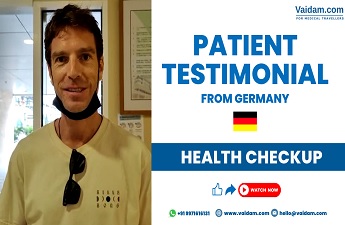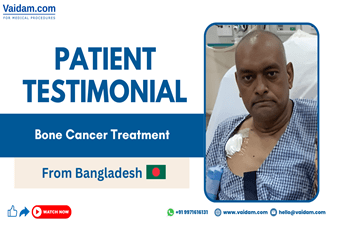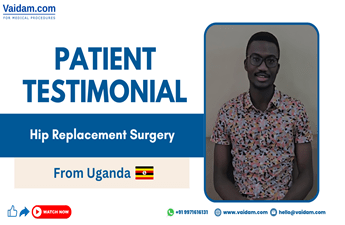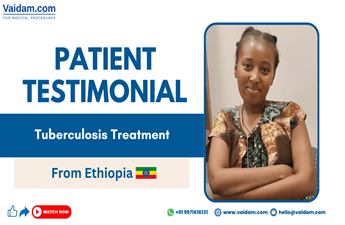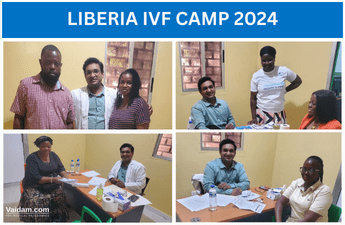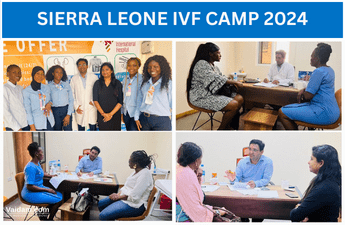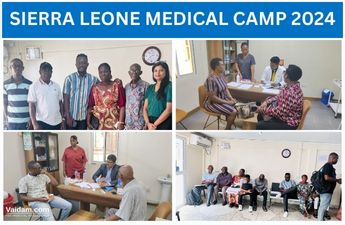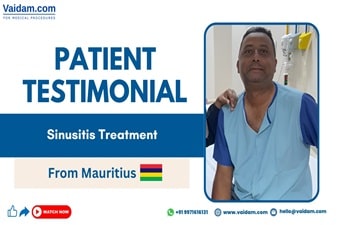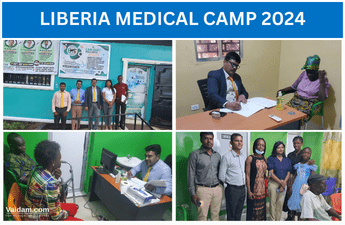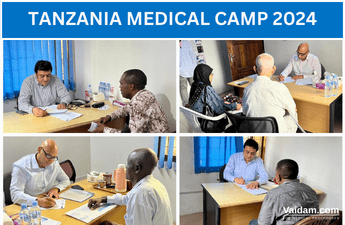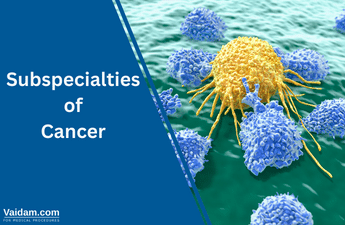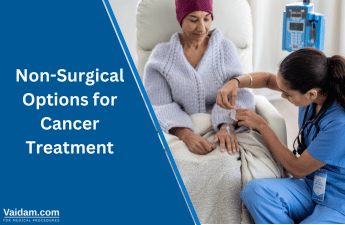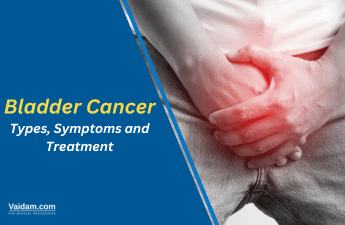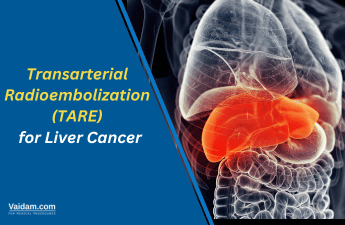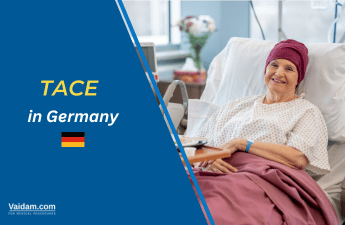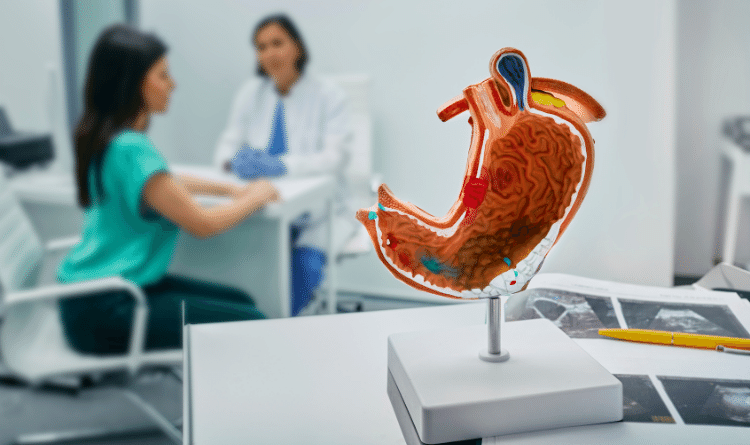
Like any other cancer, stomach cancer has also become a global concern. Accounting for 6% of total cancer cases, it has become 5th most frequently diagnosed cancer in the world. Around 15,000 cases of stomach cancer were diagnosed in 2019. More commonly known as gastric cancer, it affected 10,89,103 people worldwide in 2020. The disease mainly affects older people, generally aged 65 years and above.
Stomach cancer, if diagnosed early, can be cured completely. The German healthcare system provides the latest diagnostic facilities to achieve this. Even if you are in the advanced stages of stomach cancer, German doctors are highly skilled and experienced in treating it. The hospitals offer innovative treatment methods like Cytoreductive Surgery, Hyperthermic Intraperitoneal Chemotherapy (HIPEC), Transarterial Chemoembolization (TACE), 3D-CRT, and IMRT.
The cost of stomach cancer treatment in Germany ranges from USD 18000 to USD 22000, which is relatively less than in many other developed nations.
This blog is a guide to stomach cancer, its risk factors, treatment approaches, and related costs in Germany. You will also get a list of the best oncology hospitals in Germany.
Get in Touch with Medical Experts
What is Stomach Cancer?
Stomach or gastric cancer is marked by the abnormal growth of healthy cells in the stomach, ultimately forming a tumor. This tumor can be benign (will grow but not spread) or malignant (will grow and spread to other body parts).
Stomach cancer can start from any part of the organ and then spread to other body parts like the liver, lungs, bones, ovaries, abdominal cavity, etc.
The most common type of stomach cancer is adenocarcinoma (cancer that begins in glandular tissue). Other types of gastric cancer are lymphoma, neuroendocrine tumors, and gastric sarcoma.
What are the Associated Risk Factors With Stomach Cancer?

Risk factors comprise several conditions that increase the chances of getting a particular disease. Scientists have found various risk factors associated with stomach cancer, out of which some can be controlled, like smoking, while others, such as age or family history, can’t be changed.
Some common risk factors of gastric cancer are –
- Age: Older people in their 60s or 70s are at a higher risk.
- Gender: Men are more prone to develop stomach cancer than women.
- Geography: People living in East Asia, South & Central America, and Eastern Europe have higher chances of being affected by stomach cancer than people living in Africa and North America.
- Helicobacter Pylori Infection: Long-term infection with H pylori bacteria may lead to precancerous changes and atrophic gastritis.
- Alcohol and Smoking: Consuming three or more drinks daily increases the risk of stomach cancer. Smoking also increases the chances of stomach cancer, especially in the upper part. Tobacco consumption nearly doubles the rate of gastric cancer.
- Family History: First-degree relatives of a person with the disease have a two to three times higher risk than the general population. If more than one first-degree relative has the disease, the risk is about 10-fold higher.
- Epstein-Barr virus (EBV) infection: About 5 to 10% of gastric cancers are attributed to infection with the Epstein-Barr virus. EBV-linked stomach cancers are slow growing and are less likely to spread to other body parts.
What are the Treatment Options Available in Germany for Stomach Cancer?
The hospitals in Germany treat cancer in a variety of ways, including using the latest advancements in cancer care. Gastric cancer is often managed with a triadic approach using surgery, chemotherapy, and radiation. Below are mentioned treatment options available in Germany:
Chemotherapy
- Chemotherapy involves using chemical agents to kill cancer cells. These agents can be given via mouth as pills or injected into veins.
- Chemotherapy may be given before surgery (neoadjuvant therapy). It is used to shrink the tumor to make the surgery easier.
- Chemotherapy is also given after surgery (adjuvant therapy) to kill any remaining malignant cells after the surgical removal of the tumor.
- Common chemotherapeutic drugs are 5 FU (fluorouracil), carboplatin, oxaliplatin, paclitaxel, docetaxel, cisplatin, and tipiracil.
- Side effects of chemo include neuropathy, heart damage, hand-foot syndrome, diarrhea, mouth sores, fatigue, hair loss, easy bleeding, and increased chances of infection.
Targeted Therapy
- Targeted therapy works in a different manner than standard chemotherapy. It is a relatively new type of drug therapy that involves using drugs that specifically target particular molecular structures.
- In targeted therapy, drugs are selected individually on the basis of the presence of specific genetic mutations.
- Unlike standard chemotherapy, targeted therapy does not affect every cell but acts explicitly on cells that have specific receptors on their surface.
- Some stomach cancer cells have an excessive amount of a protein called HER2 (human epidermal growth factor receptor 2). For such cases, drugs like trastuzumab and fam-trastuzumab are prescribed.
- VEGF is another protein that helps in making new blood vessels to provide nutrients to cancer cells. Drugs like ramucirumab bind to the VEGF receptor and inhibit this process.
Immunotherapy
- The immune system of the body uses checkpoint proteins to identify normal cells vs. abnormal cells. Cancer cells have the ability to use these checkpoints and hide from the immune system.
- Immunotherapy involves using drugs (immune checkpoint inhibitors) that target these checkpoints.
- Nivolumab and pembrolizumab are PD-1 inhibitors and work by boosting the body’s immune system to identify and attack cancer cells. They can be used in advanced stages of stomach cancer as well.
- Nivolumab is prescribed once in two to three weeks, and pembrolizumab is given once every three to six weeks.
- Common side effects include nausea, vomiting, fever, skin rash, muscle pain, loss of appetite, itching, and shortness of breath.
Radiation Therapy
- In radiation therapy, cancer cells are attacked with X-Rays or other particles with the intent to destroy them. It consists of a defined number of treatment sessions given over a period of time.
- Radiation therapy might be given prior to the surgery in order to shrink the tumor or after the surgery to eliminate any remaining cancerous cells. Gastric cancers that can’t be removed surgically are treated with radiation therapy to slow their growth and ease symptoms like pain.
- Stomach cancers are treated mainly using external beam radiation therapy, like three-dimensional conformal radiation therapy (3D-CRT) and intensity-modulated radiation therapy (IMRT).
- German hospitals use state-of-the-art linear accelerators to give radiation therapy. Newer techniques help in accurately delivering the radiation to the tumor without harming nearby organs like the bowels, lungs, kidneys, or spine.
TACE
- Metastatic stomach cancer often gets to the liver and forms a secondary tumor foci there. TACE, or Transarterial chemoembolization, is the most common treatment approach used in such cases.
- It is a minimally invasive procedure in which emboli coated with chemotherapeutic drugs are introduced into the hepatic artery.
- The emboli block the blood supply to the tumor, making it deficient in oxygen and nutrients. The chemotherapeutic drugs have cytotoxic effects.
Surgery

- In the very early stages (T1a) of stomach cancer, the tumor may be removed non-surgically using an endoscope. The minimally invasive procedure is known as endoscopic mucosal resection.
- In the early stages (stages 0-1), a partial gastrectomy is performed. It involves removing the part of the stomach where the tumor has developed.
- Cytoreductive surgery with HIPEC: In this procedure, the visible tumor is first removed surgically, and then the abdominal cavity is washed with chemotherapeutic agents that are heated to 42 degrees Celsius. Hyperthermic intraperitoneal chemotherapy (HIPEC) is necessary to kill any of the remaining cancer cells.
- In advanced stages of stomach cancer, the oncosurgeon may recommend complete stomach removal, also known as a total gastrectomy. Chemotherapy and radiation therapy are also used simultaneously to fight cancer.
- Surrounding lymph nodes are also removed during surgery as cancer may have spread to those regional lymph nodes. The surgery is known as lymphadenectomy.
Why Prefer Germany for Stomach Cancer Treatment?
The country has made its name in medical tourism and is one of the most chosen destinations among patients seeking stomach cancer treatment. Various factors have contributed to this exponential growth of medical tourism in Germany. Some of them are –
- Affordability: Germany offers low-cost stomach cancer treatment, which is one of the main reasons people opt for the country.
- Hospitals: Germany has globally renowned hospitals which are internationally accredited.
- Latest Technologies: Germany has all the modern technologies required for successfully treating gastric cancer.
- High-Class Facilities: Hospitals in Germany have world-class facilities necessary for a comfortable stay.
- Experienced Surgeons: Germany houses eminent surgeons who are well-trained to treat complex cases.
How Cost-Effective is Stomach Cancer Treatment in Germany?
Germany offers cost-effective treatment options for stomach cancer. The cost of stomach cancer in Germany is much less when compared to other developed nations. However, the country does not compromise on the quality of care and offers world-class medical services.
- Chemotherapy: USD 9,100-13,500 (including the initial examinations, scans and consultations, and 1st dose of chemo - Outpatient)
- Radiation Therapy: USD 19,450-37,800 (6 weeks of outpatient radiotherapy)
- Targeted Therapy: USD 13,000-27,000 (depending on the drug being used)
- Gastrectomy: USD 26,100-43,300 (depending upon the extent of surgery)
- Immunotherapy: USD 27,000 (including all preliminary and follow-up examinations)
- Transarterial chemoembolization (TACE): USD 8,650-17,3004
Note: These prices of therapy are tentative pricing and might vary from one hospital to another.
Which are the Best Hospitals for Stomach Cancer Treatment in Germany?
- Charité University Hospital: Located in Berlin, it is one of the most reputed and largest hospitals in Europe. Charite’s oncology division offers the highest quality care and combines an interdisciplinary treatment approach with the latest research findings. Charite also founded Molecular Cancer Research Center (MKFZ) in 2006 to boost basic oncology research.
- University Hospital Heidelberg: Established in 1388, it is one of the oldest medical centers in Germany. The hospital works in collaboration with the German Cancer Research Center, offering the latest scientific knowledge and skilled oncologists for precise treatment. Therapeutic options at the hospital include surgical procedures, including robot-assisted surgeries (DaVinci System), radiation therapies, including proton/carbon ion therapy, stem cell transplantation, and psycho-oncology.
- Ludwig Maximilian University Hospital, Munich: With a 500-year-long tradition, the Ludwig Maximilian University (LMU) hospital treats over 500,000 patients each year. The hospital has a specific Comprehensive Cancer Center (CCC) that is recognized by the German Cancer Aid Organisation. The Department of Radiation Oncology offers a complete spectrum of radiological services, such as image-guided radiotherapy, MR-guided radiotherapy, CBCT, and brachytherapy.
- University Medical Center Hamburg-Eppendorf (UKE): Founded in 1889, University Medical Center Hamburg-Eppendorf is one of the leading hospitals in Germany. The Department of Oncology is equipped with 100 beds and treats 3300 inpatients with malignant diseases yearly. The outpatient clinic observes 21,500 patients annually. Palliative and Supportive care is also provided at the hospital.
Conclusion
To conclude, Germany provides a highly advanced and comprehensive approach to stomach cancer treatment. The country is known for its well-established medical infrastructure, cutting-edge technologies, and wealth of expertise in cancer care. Patients with stomach cancer can benefit from a range of treatment options that encompass surgery, chemotherapy, radiation therapy, immunotherapies, and targeted therapies.
However, it is crucial for patients seeking stomach cancer treatment in Germany to conduct their own research and select the best hospital according to their specific needs.



